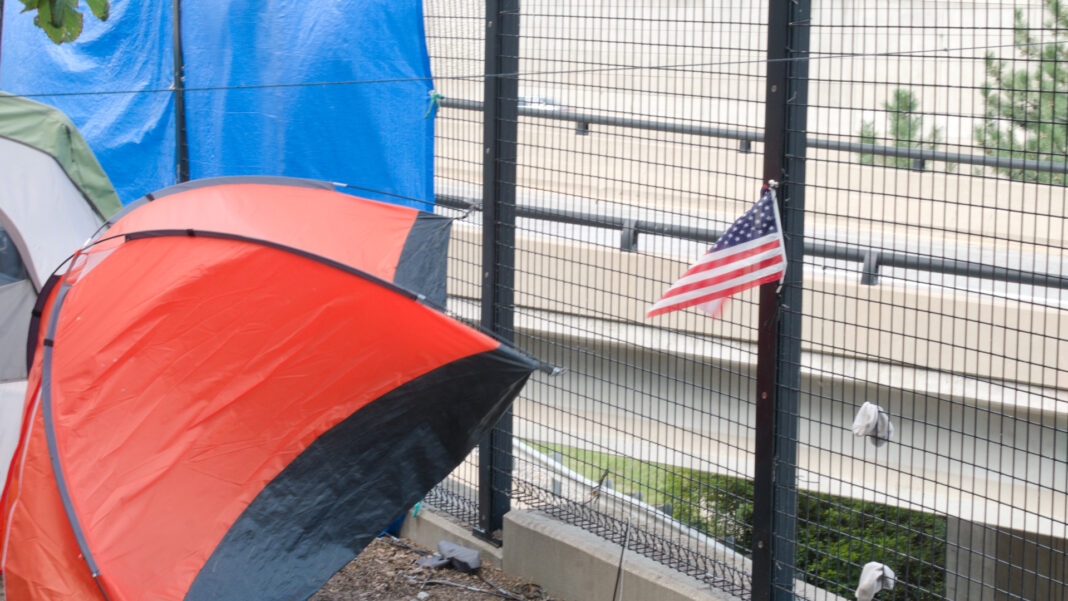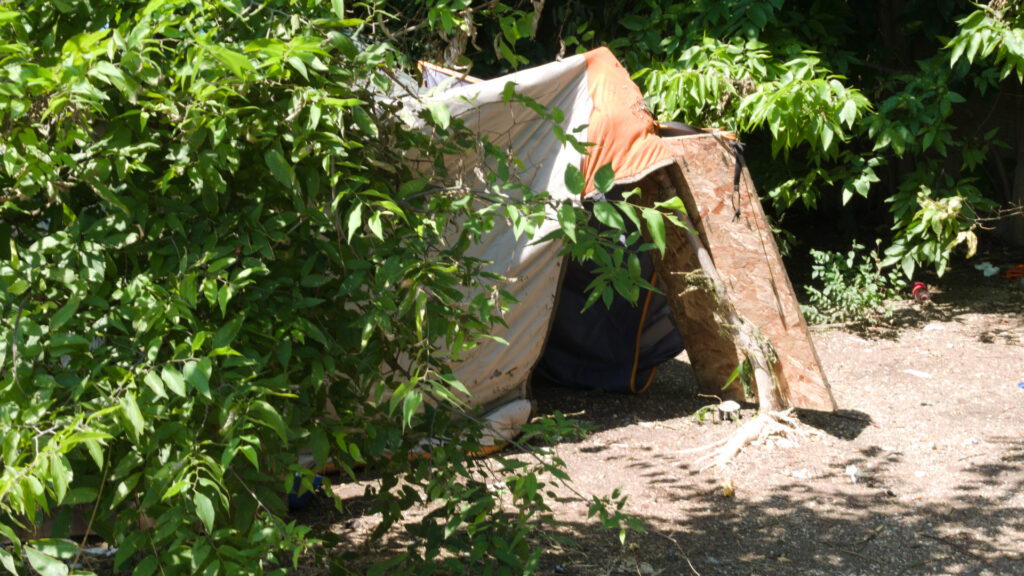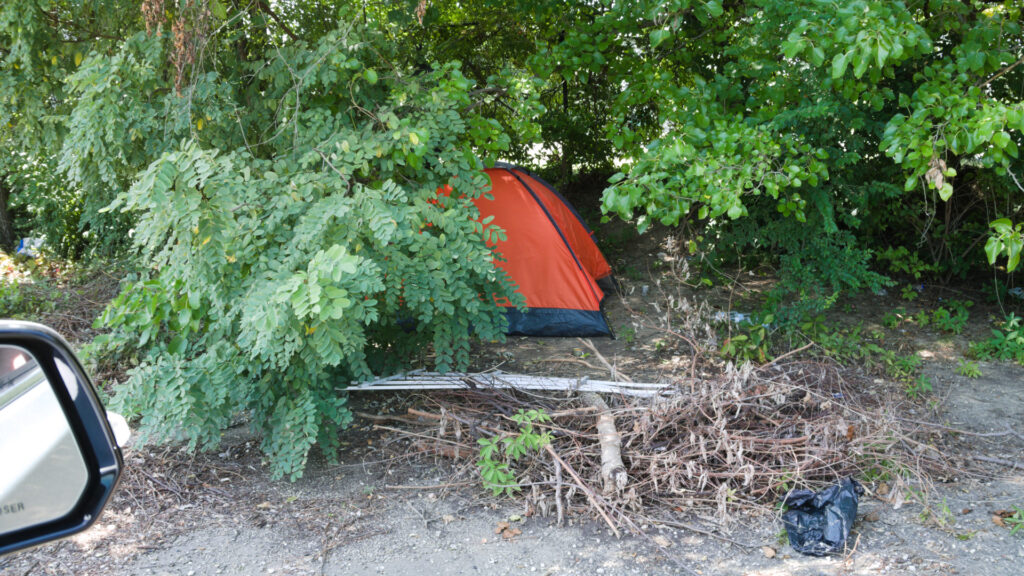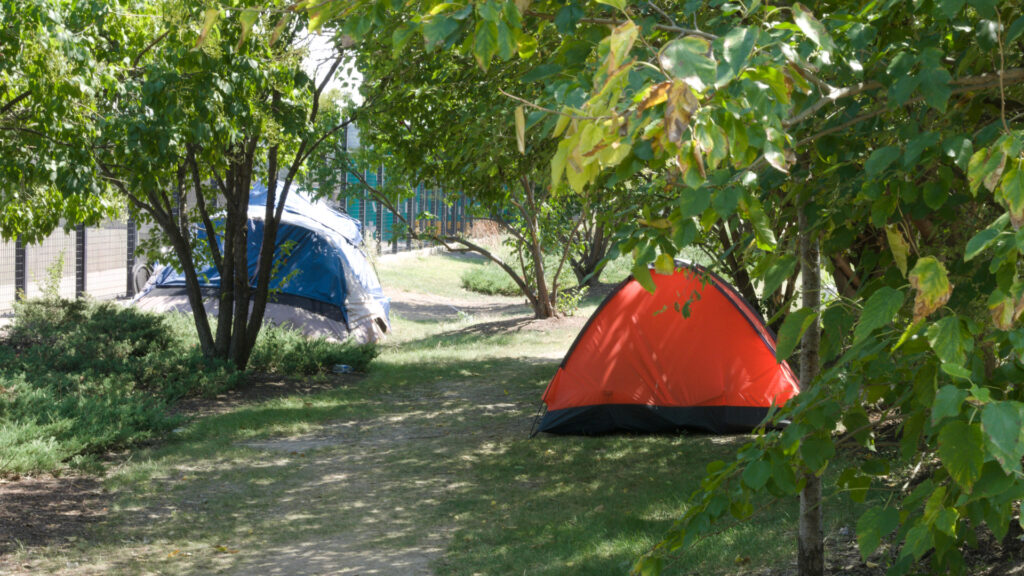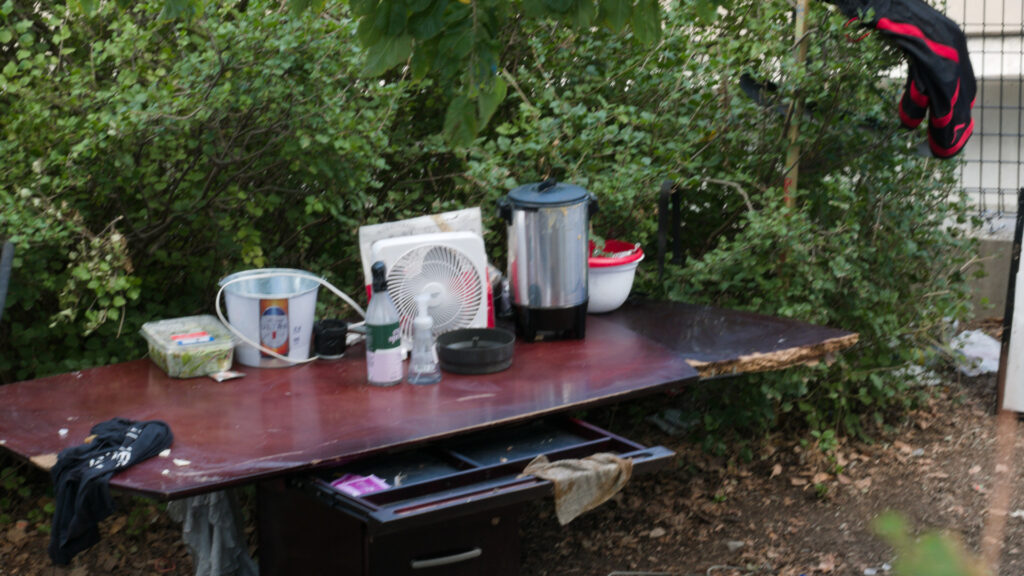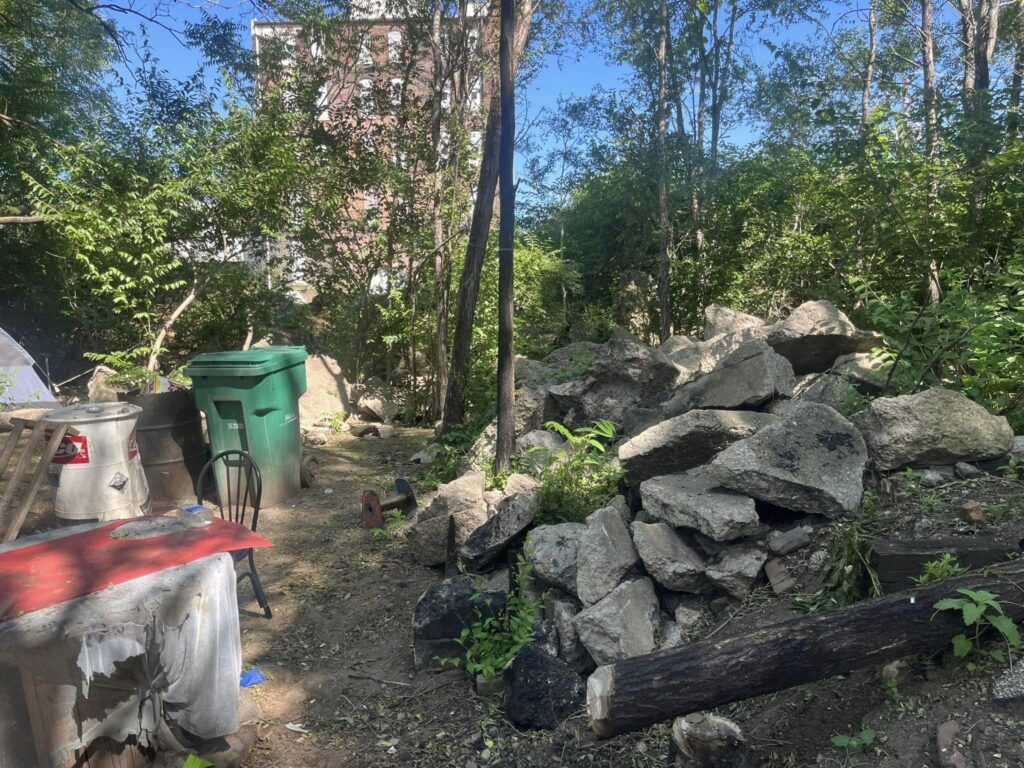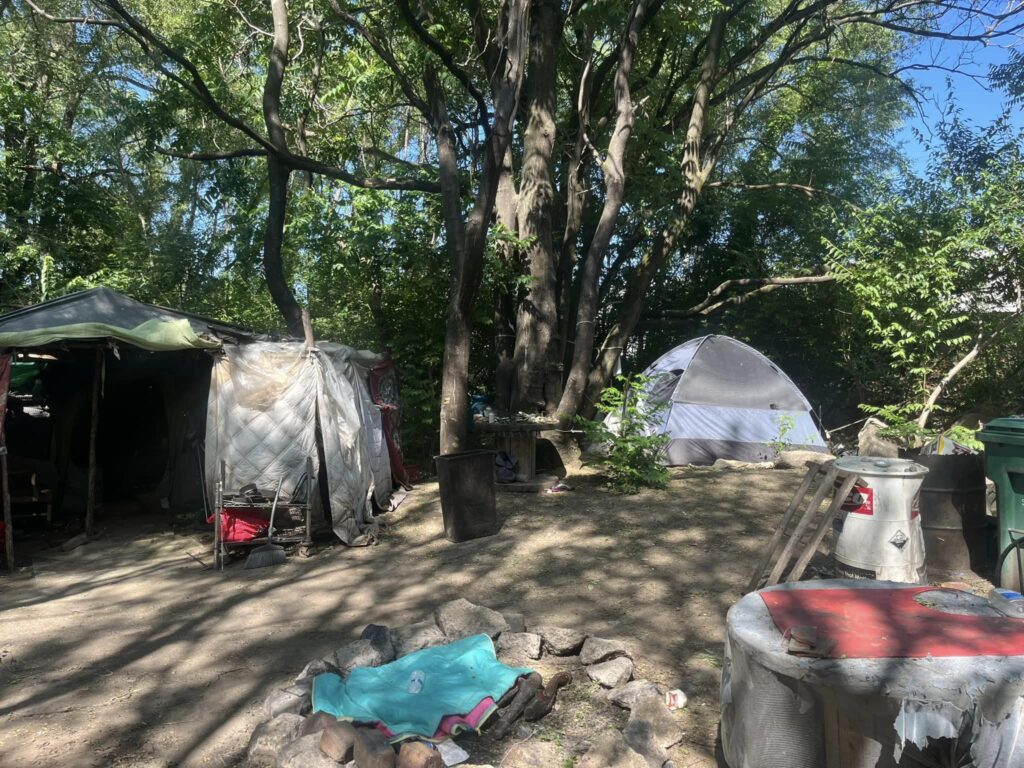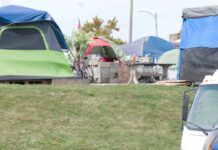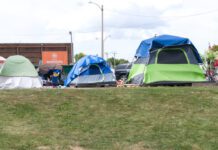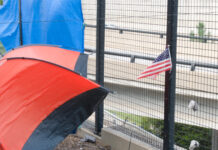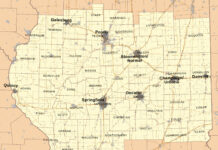These photos show the realities facing Peoria’s unhoused population as they struggle every day just to stay alive.
On Tuesday, I traveled with Kshe Bernard, co-founder of LULA Support for the Unhoused and supervisor for outreach at Jolt Harm Reduction, to numerous homeless encampments throughout downtown Peoria. The temperature reached a high of 99 degrees, and the humidity felt like we were in a furnace.
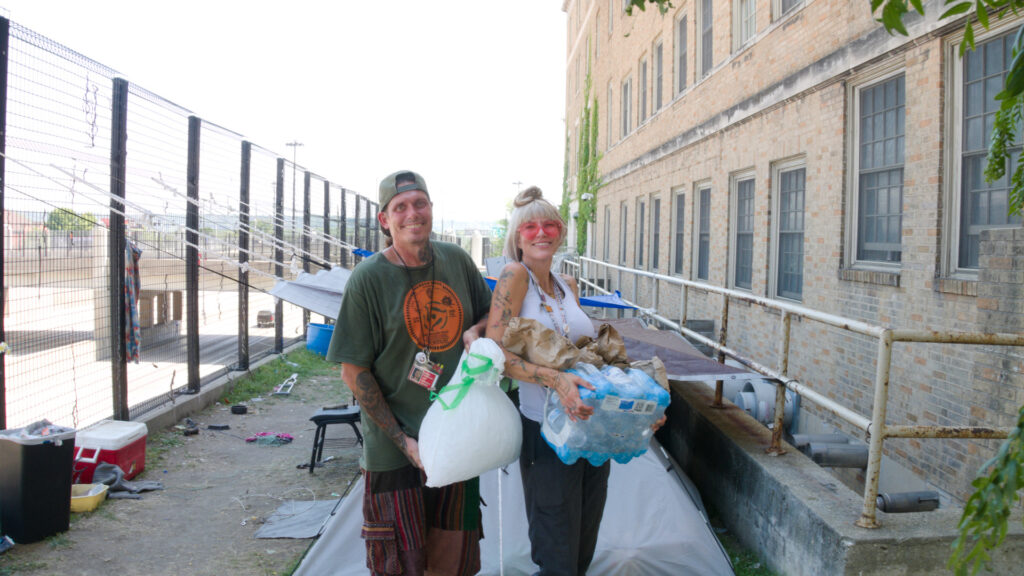
We spent our time handing out food, bottled water, giant garbage bags of ice, and other essentials to every tent we found.
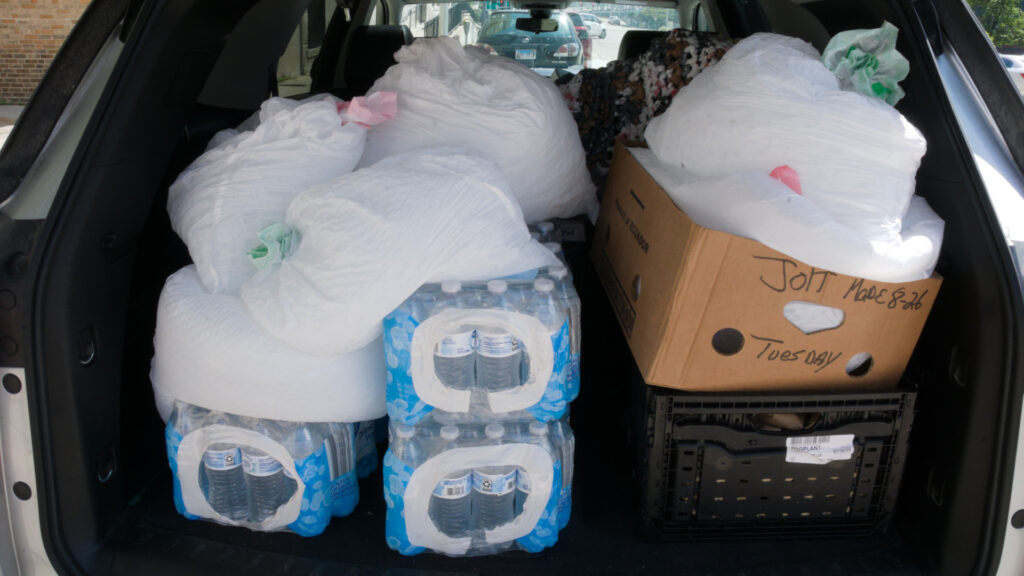
While many encampments are relatively easy to find-often easily visible to the public walking or driving by-many encampments are off the beaten paths hidden within wooded areas.
Bernard expressed an encyclopedic knowledge of each unhoused individual we encountered, including those who were not at their tents when we arrived. She knew which people were likely in the hospital or some other care facility. Regardless of their presence, every tent received donations for when they returned.
Providing bags of ice was essential in the intense heat. The ice can provide temporary air conditioning inside the tents and clean water to wash oneself and their clothes.
Bernard visits Peoria’s unhoused residents at least five times a week to provide services. She said many people volunteer not realizing how labor intensive such work is. Carrying large bags of ice, packs of water bottles, and climbing through wooded areas requires stamina and dedication, especially when the heat reaches dangerous levels.
Seeing the encampments up close reveals the ingenuity many unhoused individuals have to apply to protect themselves from the elements and local wildlife. Some tents had doors or screens attached to the opening to give extra protection. Most encampments had at least one garbage can.
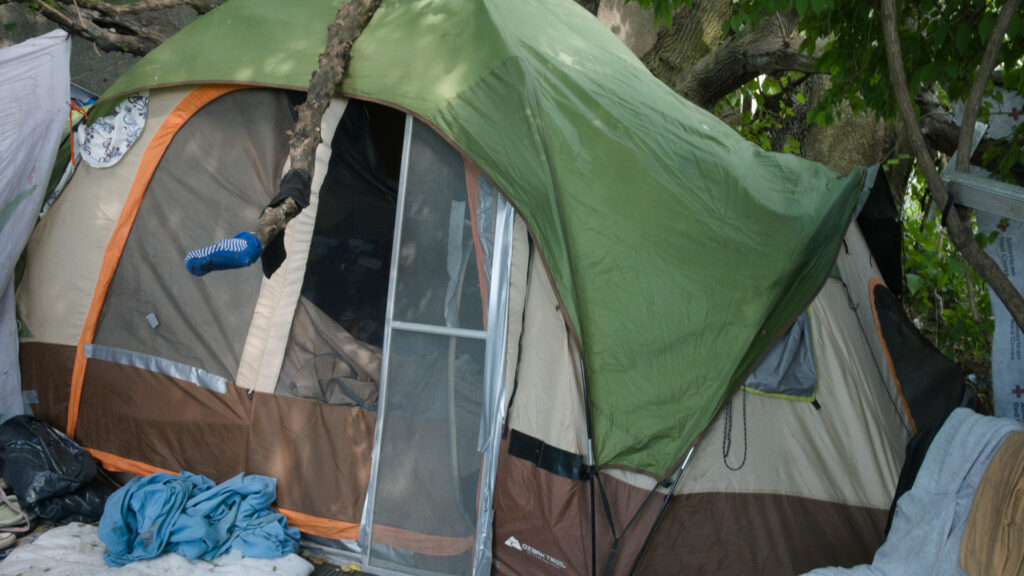
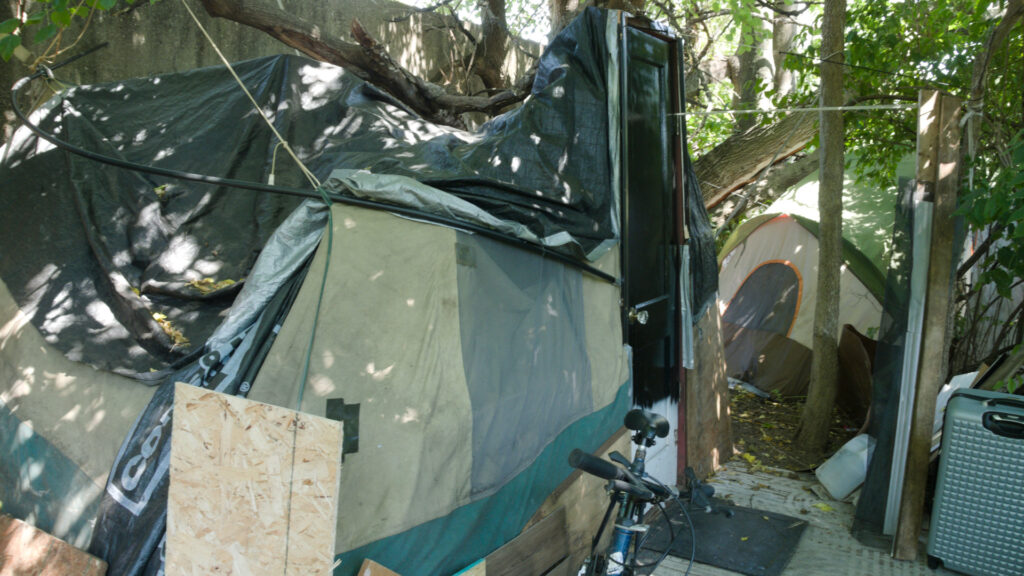
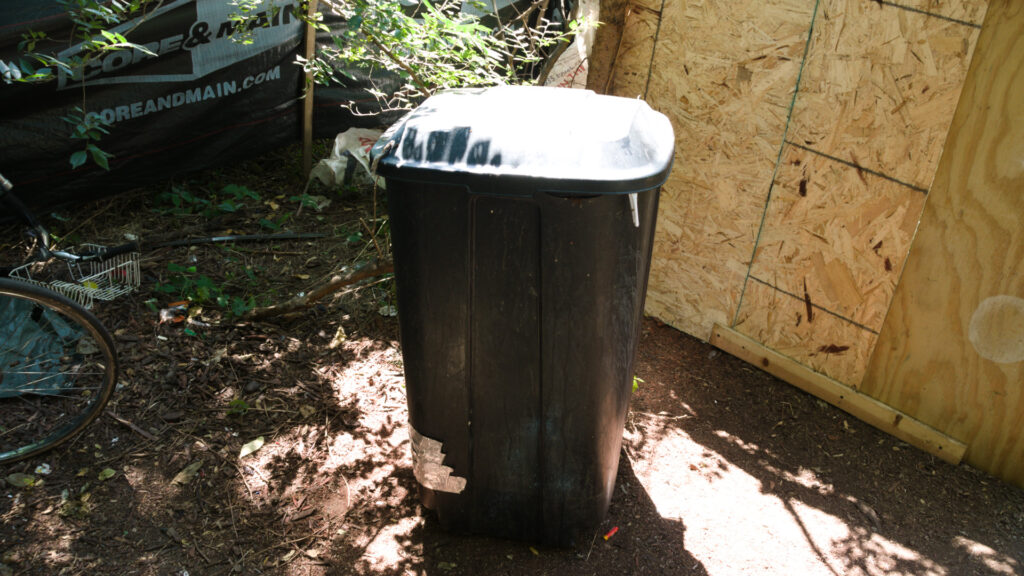
LULA Not-for-Profit was established in 2020 in the midst of the COVID-19 pandemic to fill the gaps in the existing continuum of care. Many agencies working with unhoused individuals are prevented from providing some essential services because of the restrictions in the grants they receive to…. help the unhoused. LULA is not restricted by such ironies. LULA is one hundred percent volunteer; no one receives a wage and all costs are provided through donations.
Bernard recommended that if people did want to help, they should not drop off items directly to homeless encampments they come across. Oftentimes, donations are not appropriate for the individuals at the encampment and don’t meet their needs. Peorians looking to help should also not drop off supplies to Jolt Harm Reduction, where many LULA volunteers also work. Doing so puts additional burden on Jolt to store the donations until they can be delivered. The best way to help is to donate money directly to LULA. LULA accepts Paypal and Venmo, or people can help buy products directly from LULA’s Amazon Wish List. The most important items people need is water, tents, tarps (to protect from rain & heat), and feminine hygiene products.
As previously reported, the City of Peoria is considering an anti-encampment ordinance aimed at the increasing number of homeless encampments throughout the city. The ordinance would issue fines and possible incarceration to anyone camping on public property. It could even include people sleeping in their vehicles.


